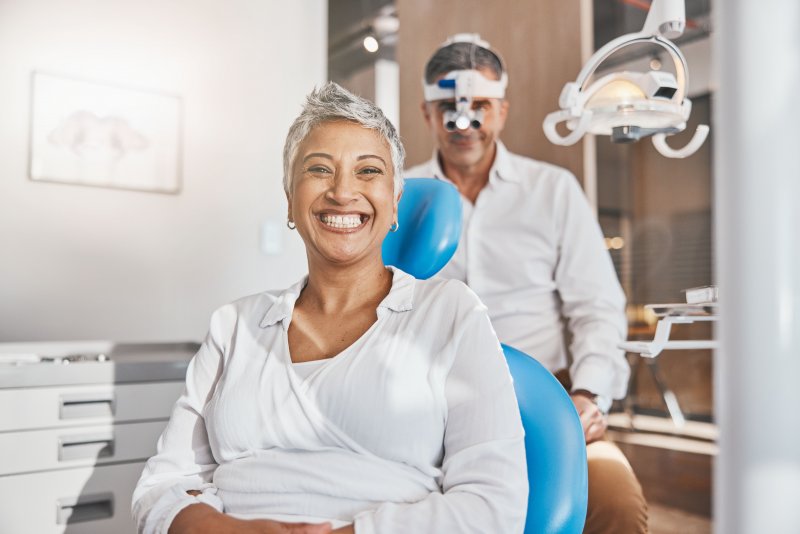
Other than traditional dentures, those struggling with complete tooth loss might consider getting full-arch dental implants. These tooth replacements are designed to combine bridges and titanium posts to create an incredibly stable foundation for rebuilding a person’s smile. Though this method comes with a variety of benefits, it’s important to know the proper steps to take to recover properly from the procedure. Read on to learn what to expect from full arch replacement treatment and tips for a smoother healing process.
What to Expect After Full Arch Replacement Surgery
Since this procedure involves minor surgery, you’ll have to take some time to recover from your appointment. During your treatment, your dentist will provide you with a local anesthetic to numb discomfort, and perhaps sedation dentistry to keep you relaxed and comfortable. After your visit, it’s normal to experience some swelling, intermittent bleeding, and discomfort for the next two days. This should be temporary and can be alleviated with over-the-counter/prescribed pain relievers.
What Can Affect Recovery Time?
Every patient’s situation will be unique, so your recovery time may vary based on several factors. Some aspects that can impact your healing process include the extent of bone grafting, any underlying/developing oral health issues you might have, any required teeth extractions you may have required, poor oral hygiene, and unhealthy habits (like smoking or chewing on hard objects). Other medical conditions can also interfere with your ability to heal efficiently, such as diabetes.
Tips for a Smooth Recovery
Before and after your procedure, your dentist should provide you with a detailed list of instructions on how to recover and maintain your full arch replacements. Some of the most common ways to ensure a smooth recovery include:
- Keeping your mouth and gums clear of debris, food particles, and bacteria
- Using a cold compress on the outside of the mouth to reduce swelling/discomfort
- Sticking to softer foods like mashed potatoes, eggs, and yogurt
- Taking over-the-counter/prescribed pain medications as instructed
- Checking for swelling and/or infection that lasts longer than a couple of days
- Going to your scheduled follow-up appointments
With full arch replacements, you’ll be able to fully enjoy eating, speaking, and smiling comfortably and confidently again! Just be sure to keep the above tips in mind so that your recovery goes without a hitch.
About the Author
With well over two decades of experience, Dr. Brett Noorda is dedicated to offering long-lasting and natural-looking dental treatments. He’s highly trained in dental implant procedures and is a member of the International Congress of Oral Implantologists. If you’d like to know more about full arch replacements or wish to schedule a consultation, visit his website or call him at 702-456-7403.
